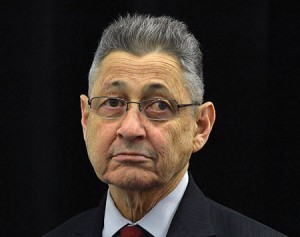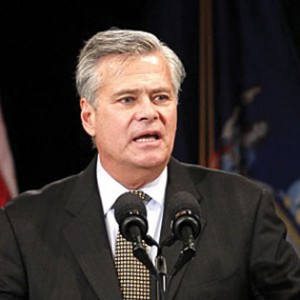by Joseph P. Tartaro | Executive Editor
With two of the three men responsible for passage of New York State’s hated SAFE Act in January 2013 now under federal corruption indictments, it is not so surprising that repeal or amendment of the gun law played a role in the ensuing power drama currently being played out in Albany.
In January, one of the “three men in a room” who wield power in the state’s capital, Assembly Speaker Sheldon Silver was indicted on corruption charges, and, while professing his innocence, stepped down from his leadership position. In April, US Attorney for Manhattan Preet Bharara added another charge. Silver has been head of the Democrat-controlled State Assembly since 1994.
Silver, from New York City, has been an enthusiastic supporter of almost any gun control proposal in the state Assembly throughout his political career. In fact, that house of the legislature has traditionally passed a bouquet of gun control measures in almost every session for many years, only to have most of them killed by a Republican-controlled Senate Codes Committee.
A few days later in April, Bharara announced that state Sen. Dean Skelos, leader of the Republican Senate majority conference, and his son had been indicted on multiple corruption charges. Skelos was officially charged on May 3. While he, too, said he was innocent of the charges, including bribery and extortion, Skelos did not immediately relinquish his grip on Senate power. In part, this was due to the slim majority his party held in the State Senate.
When gun control measures have been passed in New York State it has been because of Republican acquiescence. That was what happened when GOP Gov. George Pataki caused the state’s first ban on so-called assault weapons to be enacted. And that happened when Skelos allowed Gov. Andrew Cuomo’s Safe Ammunition and Firearms Enforcement (SAFE) Act to be rushed through the legislature so hastily in 2013 after the Sandy Hook school shooting. Skelos himself voted it, and helped in votes to fund some of its provisions which are not yet in force, such as the ammunition purchase registry.
So, as the GOP caucus struggled with electing a successor to the Majority Leader’s office vacated by Skelos, the subject of repealing or amending the SAFE Act became an important con-sideration. Republican votes for Cuomo’s gun control law had cost them three seats in the November 2014 elections.
Cuomo, as might be expected by those who parse political payoff, has already appointed one of the Republican senators who voted for the SAFE Act and lost last year, Mark Grisanti, from Western New York, to the state’s court of claims. Probably others will be similarly shielded in their political careers.
However, repeal or amendment of the SAFE Act became part of the bargaining for party votes by the two leading GOP Senate prospects for the high office, John J. Flanagan Jr. of Suffolk County on Long Island who voted for the original SAFE Act, and John A. DeFrancisco, a Syracuse-area Republican and SAFE Act opponent.
Later, according to the Buffalo News, Flanagan said he is open to making changes to the gun-control law which has been opposed by most of the state’s county legislatures and by most county sheriffs.
“Fundamentally, I think there are changes we can advance. Do I expect lofty praise and support from the Assembly and executive? Not really, but that should not for a moment dissuade us,” Flanagan said in a Buffalo News interview.
The comments by Flanagan, who was elevated by his members to the top Senate job, came as the National Rifle Association’s New York chapter said the six upstate Republicans who backed Flanagan should be ready for GOP primary contests next year.
“I hope for the sake of the six upstaters who voted for Flanagan that they got a good deal because I think they’re going to wind up paying the price for it in the long run,” said Tom King, president of the New York State Rifle and Pistol Association.
Flanagan cited two provisions the Senate might try to get changed. One restricts the gifting of certain guns, such as in a will, to family members, a provision that Flanagan called “dumb.” The other, and one of the most contested, bans more than seven bullets being loaded into a gun’s magazine. That provision is the subject of ongoing litigation; previous state law banned the possession of magazines manufactured after September 1994 that could hold more than 10 rounds.
“To me, I think it should be 10,” Flanagan told The News.
Flanagan also defended what he described as his long legislative history backing Second Amendment rights and said that outright repeal of the law is not going to happen. He said the Senate insisted on “incredibly important provisions” in the SAFE Act, such as stronger penalties for gun crimes and a requirement that mental health providers report potentially dangerous patients to officials who then can seek to confiscate their weapons.
The new majority leader said he doesn’t think “for a second” that those provisions should be rescinded.
Second Amendment advocates unsuccessfully pressed upstate Republicans to stick together in the leadership vote and put DeFrancisco, who favors SAFE Act repeal, as one of the three men in a room.






